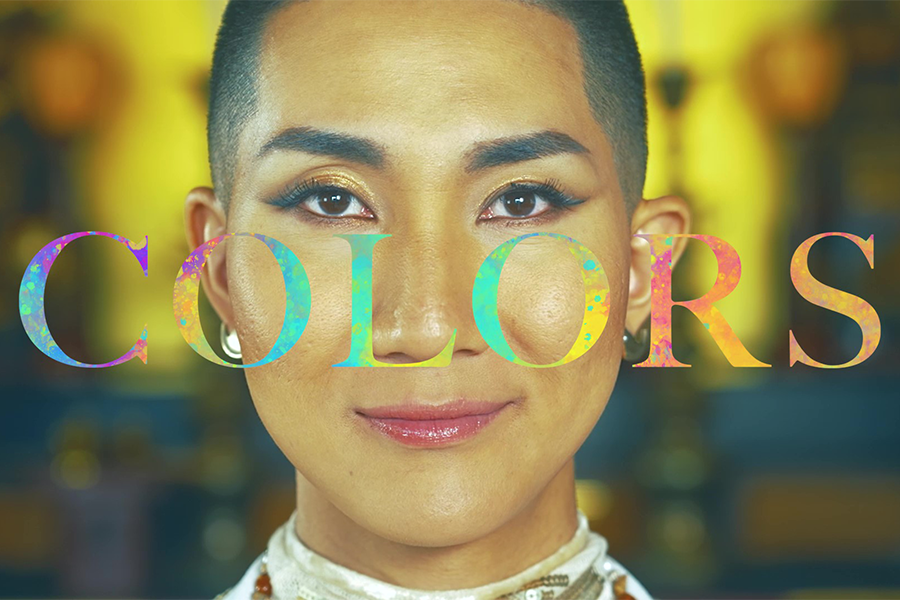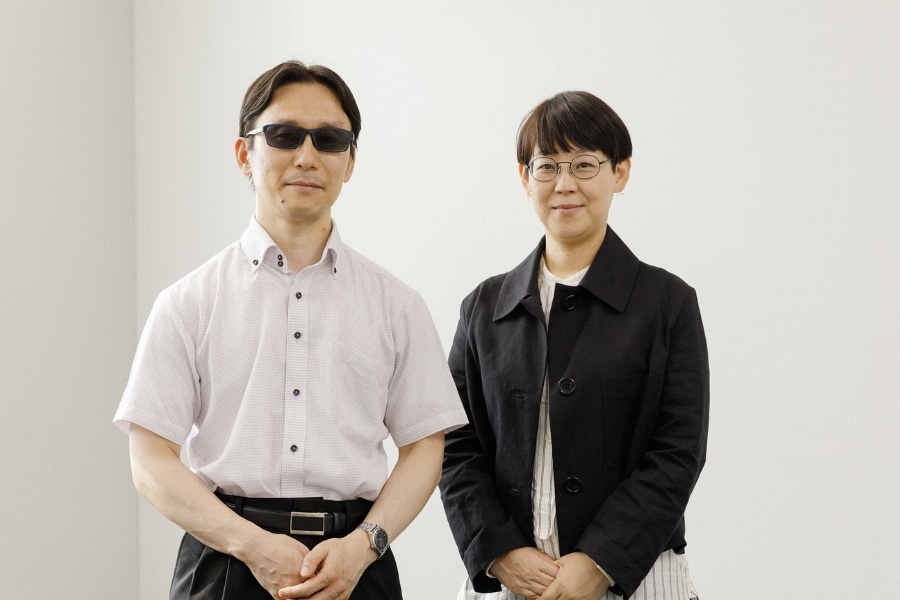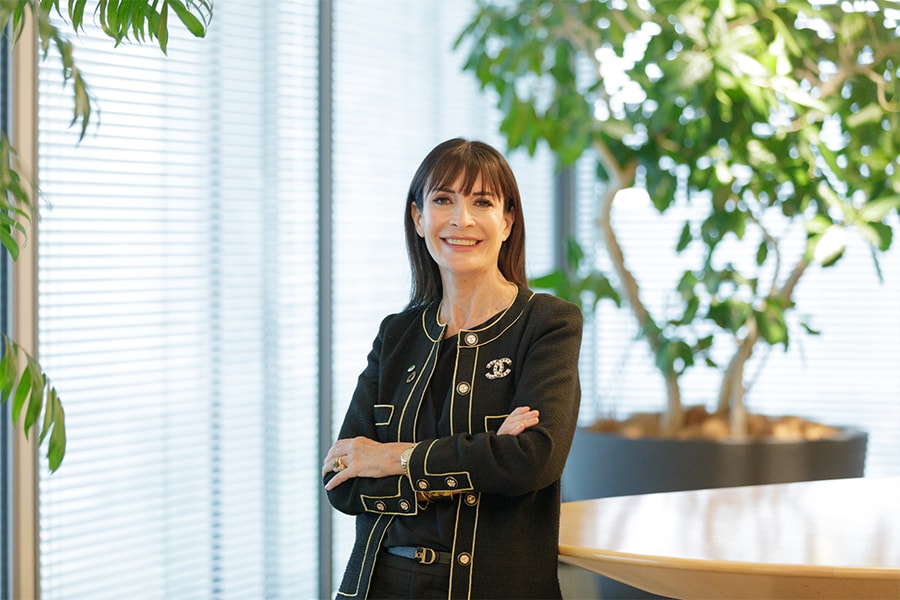Hitachi’s Chief Diversity, Equity and Inclusion Officer Discusses “DEI” as a Key Driver to Sustainable Business Growth
Nov. 15, 2022
Editing Team
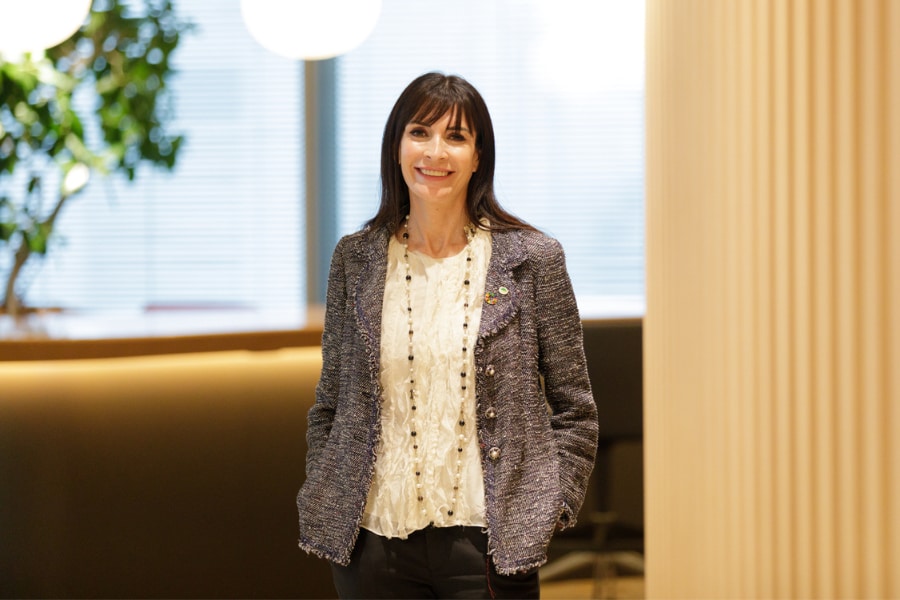
Hitachi’s Diversity, Equity and Inclusion (DEI) has a history of over 20 years. It started with the year 2000’s Support for Women’s Career Advancement. With its global footprint expanding, in 2021, Hitachi, Ltd. announced a target of increasing the ratio of female and non-Japanese executive and corporate officers to 30% each by the fiscal year 2030, which marked a milestone in Hitachi’s DEI journey. Today we cover all different aspects of diversity to be leveraged as value through equity and inclusion in each sector, on a global and regional level.
Vice President and Executive Officer Lorena Dellagiovanna plays a leading role in accelerating DEI strategy as Chief Diversity, Equity and Inclusion Officer (CDEIO) and Chief Sustainability Officer. In this article, Dellagiovanna discusses Hitachi’s new approach to DEI and its efforts to create an inclusive work environment.
Equity is a starting point for leveraging Diversity
--In 2021, Hitachi made a landmark announcement about its DEI strategy. What do you think is the most important or challenging part of promoting DEI?
Dellagiovanna: I think everyone agrees that it’s important to implement DEI initiatives within companies. DEI is not just a concept up in the air or something nice to have, but a key driver for any business to survive in the medium- and long-term future. However, getting people to shift their mindset, genuinely, is the most challenging part.
DEI should not be regarded as a commitment or responsibility of only the leadership team. Instead, it needs to be shared and supported at all levels of our organization.
Besides, just bringing diversity is not enough. Hitachi has about 370,000 employees globally, which means we are already quite diverse. What is essential is to give a voice to these diverse people; this is how we can create innovation and solutions for our customers, and contribute to society. Otherwise, diversity per se will not be useful.
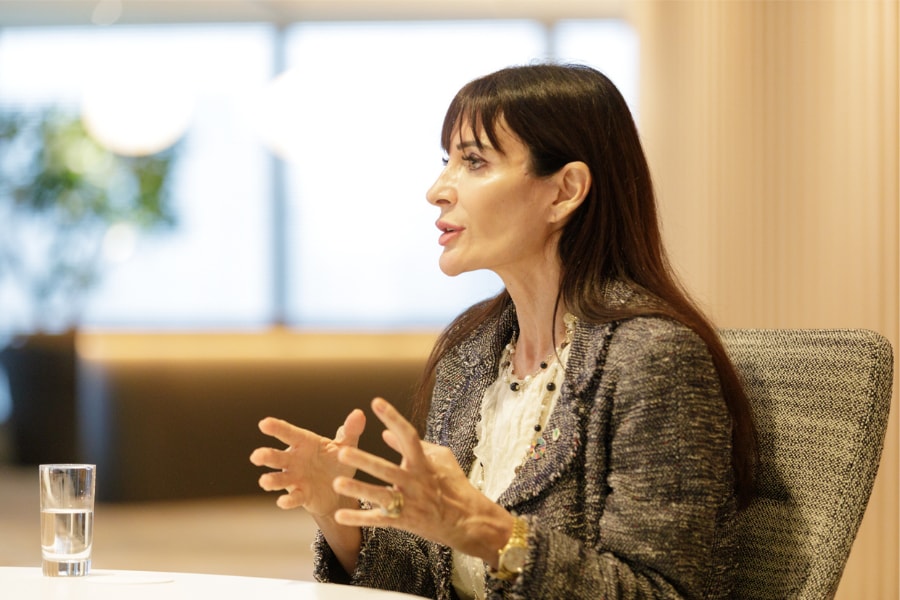
--As a global business, Hitachi needs to address different DEI issues across the world. How do you implement the DEI strategy worldwide?
Dellagiovanna: We recognize that DEI priorities differ from country to country. That’s why it is important to be flexible and allow each region to set its own approach to implementing the DEI strategy. Although we have a global framework and policy, we want to activate it locally to make sure to leave no one behind.
We are committed to all aspects of diversity, including age, background, gender, sexuality, religion... . However, we have also identified three main global themes applicable to all businesses and regions: gender balance, cultural diversity, and multiple generations. We set KPIs and monitor the advancement of these three categories globally.
--This year, 2022, Hitachi added Equity to your original D&I (Diversity and Inclusion) strategy. What is Equity?
Dellagiovanna: Our new approach to diversity includes the concept of as one of the main focus. To understand better, let me clarify the difference between equity and equality.
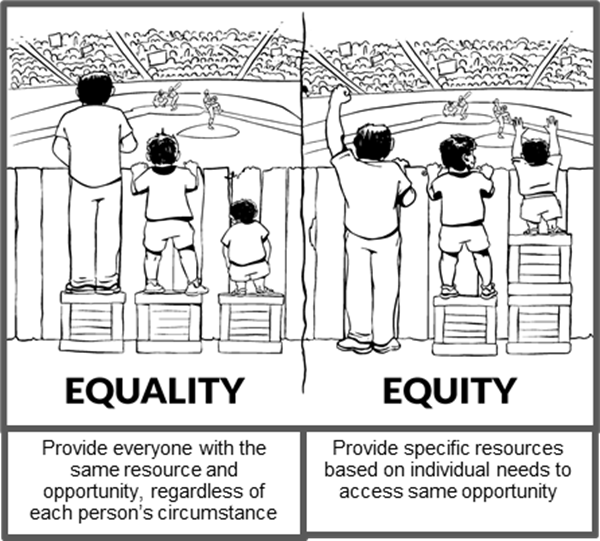
The difference between Equality and Equity(Source: Interaction Institute for Social Change )
)
Treating people equally means providing everyone with the same conditions. This is fair when everyone has the same needs, but at Hitachi, we are all different, and each person may have different needs.
Instead, equity means that we recognize that each of us is different, and each of us needs different conditions to thrive. We put in place policies, tools, and adaptations to allow everyone to access the same opportunities. For example, being a global company, we find ourselves working with colleagues from different countries and cultures. When scheduling a meeting we need to take into consideration that attendees are in different time zones, recognizing that people take time away from the office for national or cultural holidays, translating information into different languages, and allowing people to connect remotely to let them participate. This is important to ensure equity.
We believe equity is the starting point for creating an inclusive culture where we can leverage the diversity of all our colleagues.
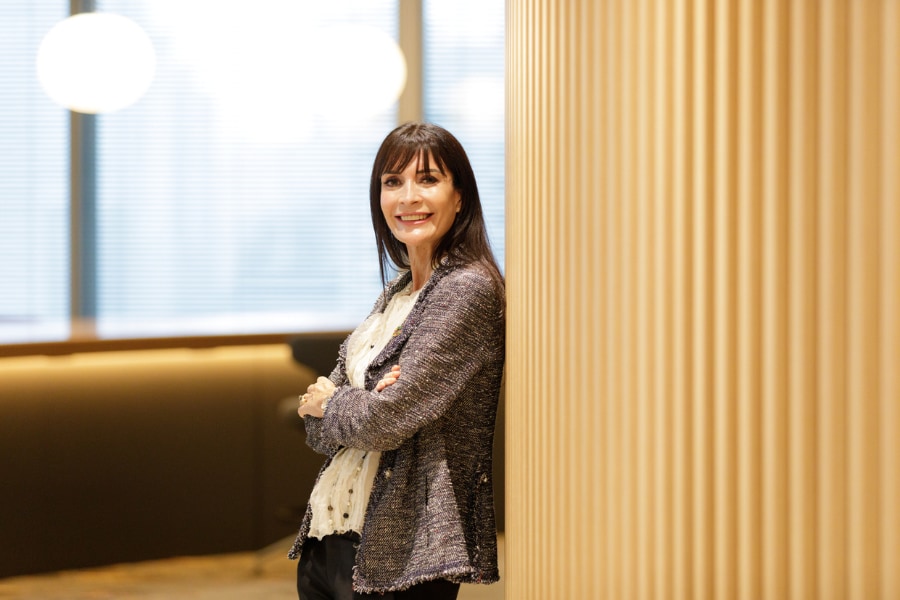
Unconscious bias creates barriers to Inclusion
--Next, we’d like to ask you about Inclusion. What do you think people should be aware of to create an inclusive work environment?
Dellagiovanna: First of all, we need to understand the concept of unconscious bias. Everyone has unconscious biases, it comes with our own personal, professional, and cultural background. Every time we encounter something different, the uncertainty makes us feel uncomfortable. So, unconscious bias could create barriers to inclusion, performance, engagement, and ultimately innovation.
However, the good news is that even if we cannot completely eliminate our biases, becoming aware of them and understanding why they exist allow us to manage them. I’m asking myself every day, “Am I treating people fairly?” “Am I really listening to them?” “Is this a bias?” Working on unconscious bias is like going to a gym. We need to exercise daily.
The next step is to cultivate an inclusive mindset. If we are not ready to welcome different ways of thinking, our diversity doesn’t mean anything. Learn to listen to people and be open to different points of view. Don’t be afraid to make a change. Cultivate a curious mind. That way, you can learn more from others, grow as a person, and give back to society.
--To raise awareness of unconscious bias, what do you think Hitachi can do?
Dellagiovanna: Basically, overtime, we must continue to provide a lot of training for our employees.
I think that Virtual Reality (VR) technology could be useful for training on the unconscious bias because that allows us to put ourselves in the shoes of someone else. For example, understand how a colleague coming from a different country feels in a foreign work environment where people speak a different language; or again, being a young new colleague joining the company and feeling not included into the discussion because of lack of experience, or having a different background. These are just a few examples, but we can go on with the list, tackling all different aspects of diversity.
We will work closely together with businesses and regional leaders for finding the best way to tackle Unconscious Bias. They are strongly linked to our own culture, therefore need to be addressed from local perspectives.
Hitachi is also promoting Talent Exchange globally. Working in another country and interacting with a different culture will help you understand more about unconscious bias, change your mindset, and see things differently. I encourage all the employees to take this opportunity and get out of their comfort zone.
Overall, I think this is also a good chance for us to improve ourselves. Asking ourselves if we have been fair in a conversation, if we are able to understand other peoples’ perspectives or listen to them with an open mind. This is something we can benefit from, in both our professional and personal life.
--Is there an example of overcoming unconscious bias?
Dellagiovanna: I can mention a personal example. When I moved to Japan, I went to a very good Italian restaurant in Tokyo. When entering, the person in charge of the restaurant came to present himself and offer his support in explaining the menu. Two waitresses were helping him in taking the order, they were both Italian and I spontaneously spoke with them asking for a suggestion – unconsciously I was assuming that they, being Italian, would have better understood my taste. A few seconds later, I immediately realized what I was doing, and that because of my unconscious bias I was not recognizing that the person in charge of the restaurant was much more prepared, since he lived and studied in Italy, and he could have supported me much better. We are all human, and it is important that we acknowledge and become aware of the unconscious thoughts to not be driven by them.
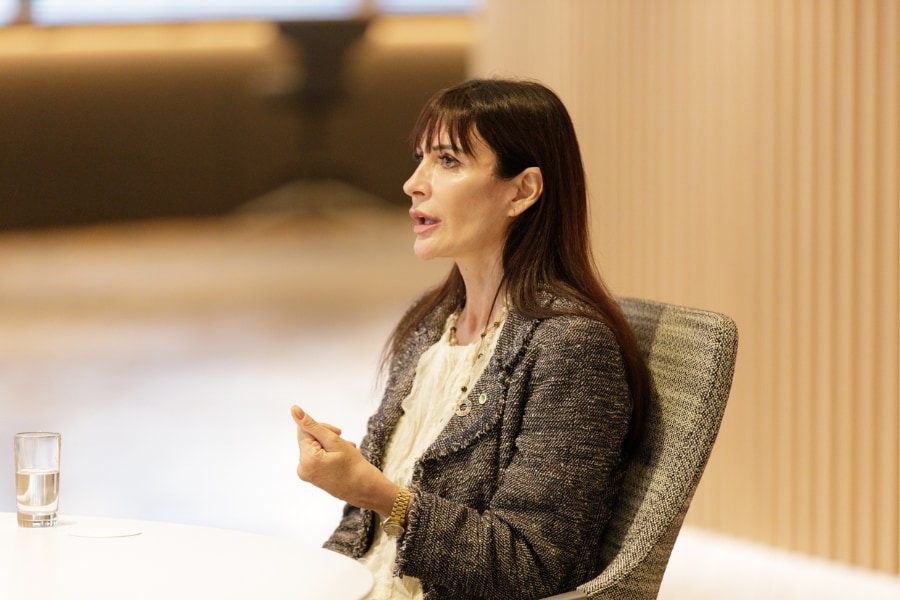
DEI for a better world
--According to the World Economic Forum’s report, Japan ranked 116th among 146 countries in the gender gap rankings in 2022. What do you think Hitachi can do to create a work environment where women can fulfill their potential?
Dellagiovanna: Achieving gender equality not the goal only for Japan, but globally. Hitachi wishes to see more female colleagues progress in their careers. So, we have talked a lot about empowering women and adapted certain aspects of the workplace to support them. These include career development programs targeted at women, flexible working hours to manage family responsibilities, and enhanced maternity leave provisions.
It is also important to create a network of women where they can find role models and encourage each other. Even among female colleagues, lifestyle differs from person to person. By learning from each other, you realize that you can take on a responsible position without fear of failure, even when you have a family to care for.
Throughout my career, I’ve been frequently asked, “As a woman, have you faced any challenges?” My answer is that life itself is a challenge regardless of gender. I’ve never thought I need to compete with men, as well as generally from every person different from me. Instead, I’ve focused on what I want to do and how I can contribute to society. We should complete, not compete with each other. Women don’t need to perform like men but should be more confident and say, “I can do it.”
--Finally, could you tell us what kind of world you would like to see by achieving DEI?
Dellagiovanna: I’d like to see a much better world. DEI will lead to innovation, create new technologies and solutions, and improve people’s lives. Furthermore, DEI will enhance our financial performance, which will generate more businesses, create new jobs, and support the international economy. We can also attract more young talents, and they will shape a better future for the world.
However, DEI is not just a business issue. Every company should have moral commitments to treating people fairly and creating an inclusive culture. That’s how the world can be better in the truest sense.

